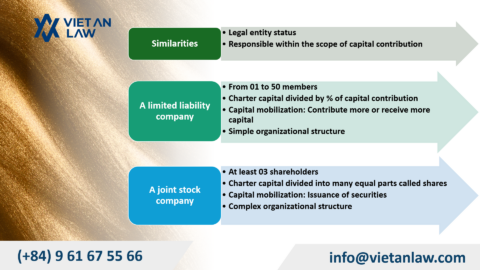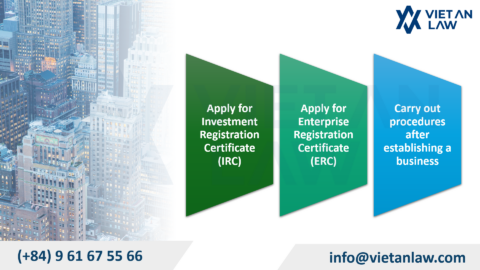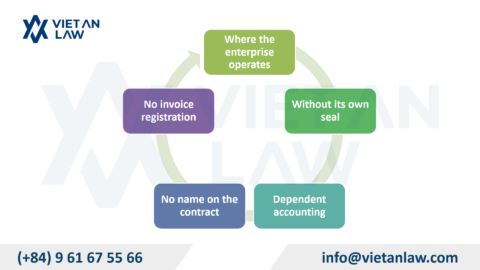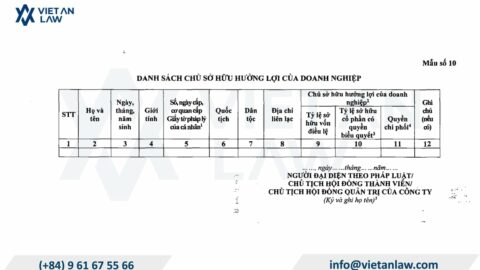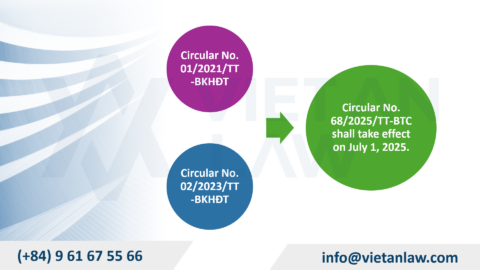The minimum capital requirement for establishing a foreign-invested company in Vietnam is an important factor that businesses need to consider when planning their investment in Vietnam. According to the current regulations, the minimum legal capital is for different types of foreign companies. Complying with the minimum capital requirements is not only a prerequisite for obtaining a business license but also helps to demonstrate the financial capacity and sustainability of the enterprise. In the article below, Viet An Law will clarify for clients about minimum capital level for establishing a company in Vietnam.
The minimum capital when establishing a foreign direct investment (FDI) company in particular and an enterprise, in general, is the minimum amount of money that an organization or individual needs to establish and operate a legal enterprise in a specific business sector.
Normally, direct investment capital will be used to carry out company establishment tasks such as renting headquarters, purchasing physical equipment, paying for business establishment services, and other activities to open a company. Therefore, when applying for an investment registration certificate, the investor’s expected capital level must ensure that it fully meets these tasks to explain to the registration agency.
Currently, according to the Enterprise Law 2020, there are no regulations on minimum capital when establishing a business. Conditions for contributing capital to establish a business depend on the economic capacity and operational purposes, and the business must provide an appropriate capital level based on the following criteria:
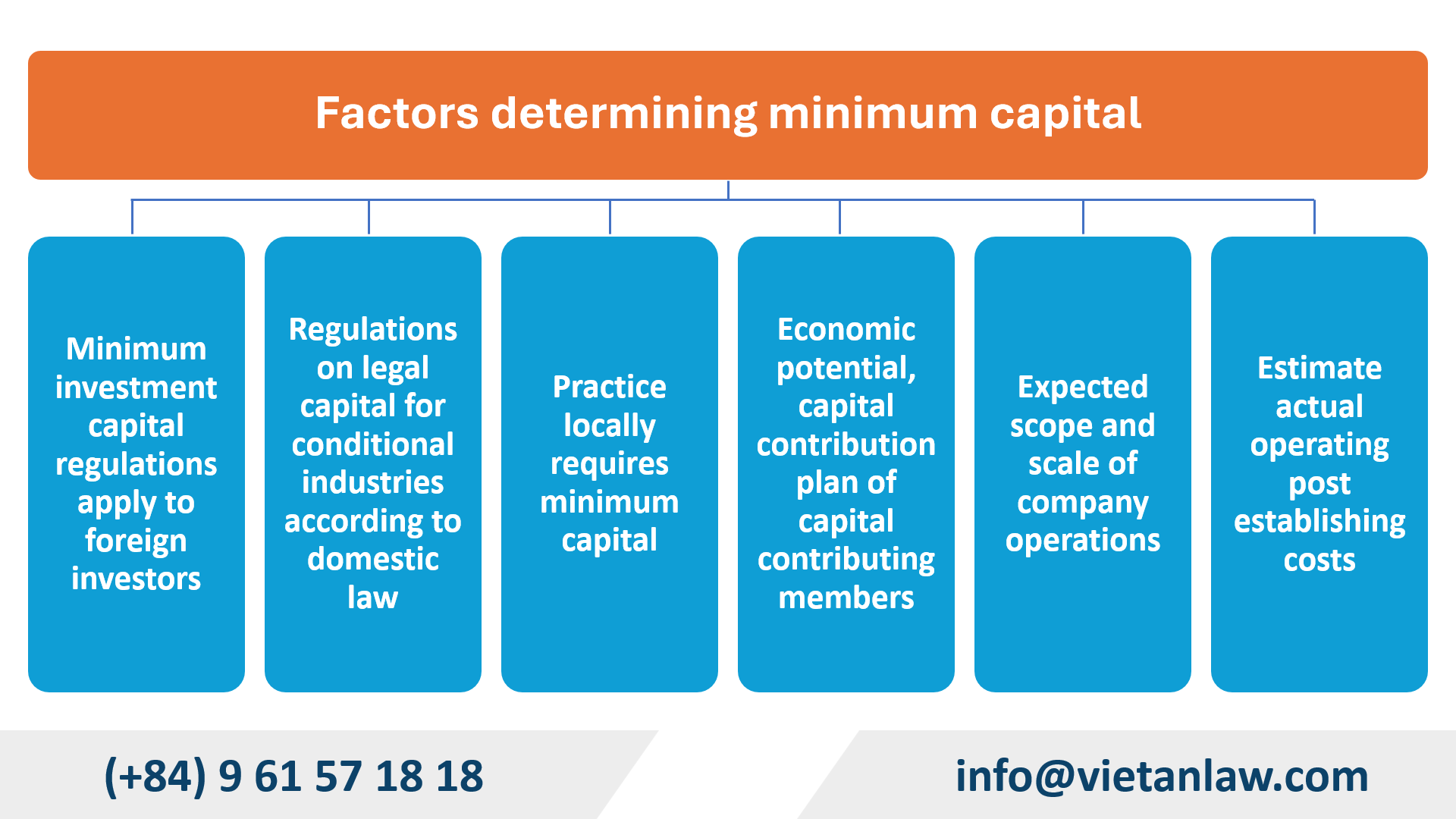
Currently, Vietnamese law only stipulates minimum capital conditions for several conditional business sectors. In the remaining cases, regulations on minimum capital will be implemented according to the regulations, needs, and policies for foreign investors of each province.
In Hanoi city in 2024, comply with Official Dispatch No. 599/UBND-KH&ĐT of Hanoi City People’s Committee dated March 6, 2024, on monitoring investment programs and projects of economic organizations with capital Foreign investment, the scale of investment capital, and capital contributed to project implementation are required to be considered closely to ensure the principle of selectively attracting direct investment capital from foreign countries, raising the issue of ensuring national defense and security come first, preventing the phenomenon of investment evading origin. Therefore, normally the regulations on investment capital to be licensed in Hanoi will be higher than in provinces and cities that do not have this policy.
According to Vietnam’s international commitments, some industries have minimum investment capital requirements so that foreign investors can access Vietnamese market.
For example, for medical examination and treatment services, according to Vietnam’s WTO commitment schedule, to obtain an investment license in Vietnam, foreign investors must meet capital conditions as follows :
Investment capital can be easily distinguished from legal capital based on the currency in which the regulations are expressed.
Legal capital is the minimum capital level prescribed by a competent authority, which is necessary to establish a business according to the provisions of law. This is the amount of capital needed to start a business project when establishing a business and often fluctuates depending on each specific field and industry.
Legal capital is specifically applied to certain business sectors such as Securities, Insurance, banking and finance, and real estate business. The purpose of regulating legal capital is to minimize risks during business operations. Therefore, contributed capital or business capital needs to reach or exceed the minimum legal capital in that industry.
Some professions that require minimum capital according to specialized laws include:
5 billion VND
Deposit is the amount of demand or term deposit that a company or organization places at a bank according to the provisions of law. This is a measure to ensure a company or organization’s finances against banks and related parties in financial transactions and commitments. This form often appears in business investment projects, especially in uncommon transactions in the civil sector.
For example: The business line for international travel services as prescribed in Decree 168/2017/ND-CP detailing the 2017 Law on Tourism stipulates the deposit level to apply for a Business License as follows:
When applying for an investment license, the application will have to demonstrate evidence of the investor’s financial potential to meet the registered capital amount. After being granted an investment license and continuing to carry out business establishment procedures, foreign investors will have to follow the same capital contribution period regulations as domestic investors.
According to the provisions of the Enterprise Law 2020, investors must contribute sufficient capital and the right type of assets as committed when registering to establish a business within 90 days of receiving the Enterprise Registration Certificate, excluding the time to transport and import contributed assets and carry out administrative procedures to transfer asset ownership.
For making capital contributions in cash, investors will transfer money to a direct investment account opened at a legal bank in Vietnam specifically for businesses established from registered investment projects. Normally, this account will be opened based on the issued investment registration certificate.
For other capital sources such as loans, mobilized capital, and capital contributed by assets, investors must comply with relevant regulations to contribute capital to the enterprise. If you need any information related to this procedure, please contact Viet An Law for the most detailed and accurate instructions.
There are many types of businesses for foreign entrepreneurs to invest in Vietnam. However, limited liability company (LLC) and joint stock company are the two most chosen types of businesses (JSC). Depending on the business line and investment field, the company can establish a company with 100% foreign capital or a contributing company, joint venture, or share purchase.
Note: The choice between establishing a company branch or RO will depend on the business purpose of the enterprise:
Clients who need advice or learn more about the minimum capital level for establishing a company in Vietnam, please contact Viet An Law Firm for the best support.
